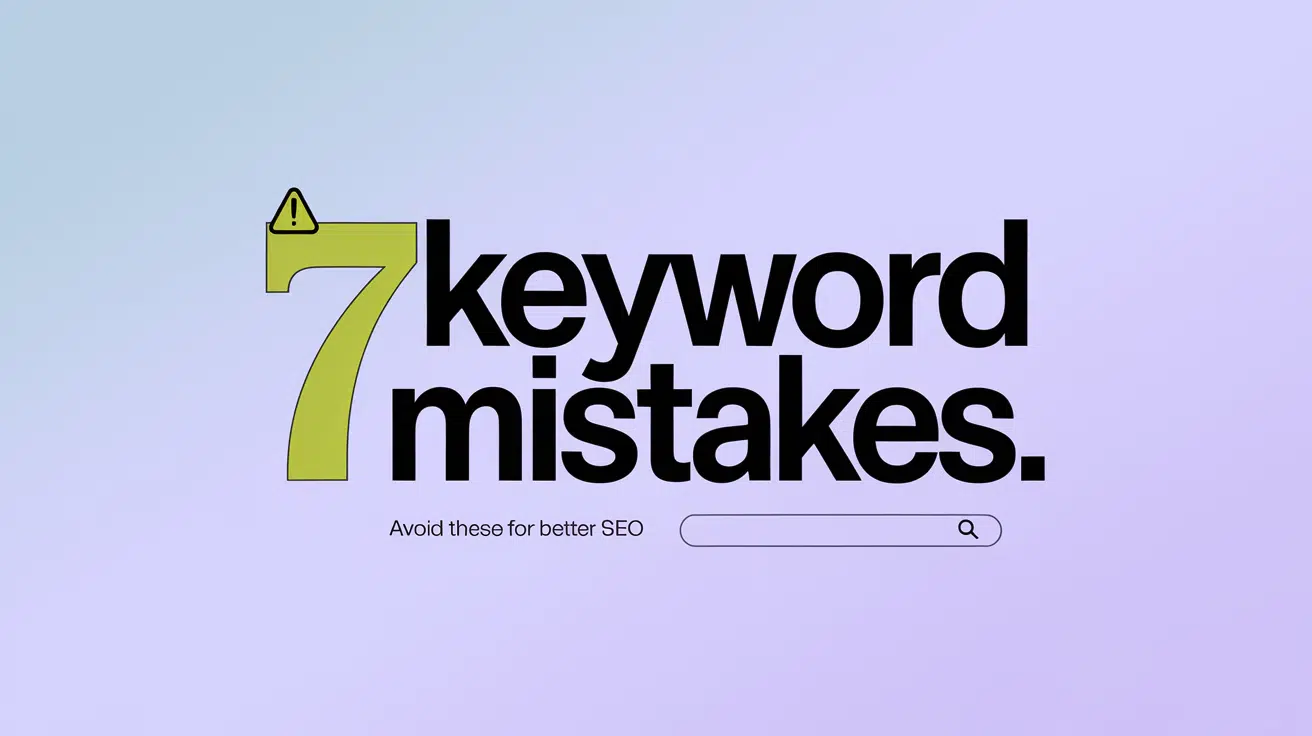Hello everyone, and welcome back to SEO Shades! In today’s blog, we’re diving into one of the most crucial aspects of SEO – Keyword Research. Whether you’re new to SEO or an experienced pro, understanding keyword research can make or break your strategy. If you make a mistake here, no matter how good your SEO strategies are, they won’t work properly. Let’s look at some of the most common SEO mistakes that many make while doing keyword research and how you can avoid them for a more effective SEO approach.
1. Not Understanding Keyword Intent Properly
One of the biggest mistakes I’ve noticed in keyword research is not fully understanding the intent behind the keyword. You may think that understanding whether the keyword is transactional or informational is enough, but that’s just part of the story.
Here’s the problem: sometimes, after identifying the keyword intent, people still don’t know what kind of content they need to create. For example, some keywords require sales pages, others need blog-style content, or service pages.
Tip: Once you’ve selected your keywords, search for them in Google and analyze the type of content that’s ranking. If your competitors are ranking with informational articles and you’re planning to create a sales page, you’re probably not going to rank well. So, always make sure the content matches the user’s intent behind the keyword.
2. Overemphasizing Keyword Difficulty
Another common mistake is focusing too much on keyword difficulty. It’s true that you should look for keywords with a good search volume and low competition, but just looking at keyword difficulty might not tell you the full story.
Example: A keyword might show low difficulty on a tool like Ahrefs or SEMrush, but when you analyze your competitors, you might find that their backlinks and domain authority make it much harder to rank for. So, don’t just rely on the difficulty score – dive deeper into competitor analysis to understand the real challenge.
3. Assuming High Search Volume Equals Good Keywords
Many beginners make the mistake of assuming that keywords with high search volume are automatically good keywords to target. While high volume is appealing, competition plays a significant role in whether you can rank for those keywords.
Tip: A high search volume keyword might be incredibly competitive. If it’s hard to rank for, you may not get any traffic from it. Instead, try mixing in low-competition keywords with higher volume ones. This way, you can rank for the low-competition keywords and gradually build your authority for the high-competition ones.
4. Focusing Only on One Type of Keyword Intent
People often make the mistake of focusing too much on one type of keyword intent. If you focus only on transactional keywords, you might miss out on potential traffic from informational or navigational keywords.
Tip: Users don’t just jump straight to a purchase. They go through different stages of intent, from information gathering to final decision-making. So, diversify your keywords to include different types of intents. This will increase the chances of attracting users at various stages of their buyer journey.
5. Keyword Cannibalization
Keyword cannibalization happens when multiple pages on your website are competing for the same keyword. This can confuse search engines and prevent your pages from ranking well.
Example: If you create two separate pages targeting similar keywords with the same intent, one might end up ranking while the other gets buried. This is a classic case of keyword cannibalization.
Tip: If you’re targeting similar keywords, ensure that the content is consolidated on one page. This will avoid competing with your own content and improve your chances of ranking higher.
6. Not Using Enough Seed Keywords
When starting keyword research, many people only explore a few seed keywords. Seed keywords are the foundation that leads to other keyword ideas. If you don’t explore enough seed keywords, you may limit your potential for discovering more valuable keywords.
Tip: Start with a broad set of seed keywords and use tools like Google Keyword Planner or Ubersuggest to discover related keywords. The more seeds you have, the more keyword opportunities you’ll uncover.
7. Keyword Stuffing in Content
Keyword stuffing is a classic mistake where people cram as many keywords into their content as possible, thinking it will boost rankings. This is not only ineffective but can also lead to penalties from search engines.
Tip: Keyword research should guide the type of content you create, but the content should flow naturally. Don’t overuse keywords; instead, focus on providing value to the user. Remember, SEO is about relevance and quality, not keyword frequency.
Conclusion
Effective keyword research is the foundation of any successful SEO strategy. By avoiding these common mistakes, you’ll be well on your way to creating content that ranks well and attracts the right kind of traffic.
Pro Tip: Take time to understand the intent behind each keyword, analyze competitors, and use a mix of high and low-competition keywords

Sure! Here’s a short author bio written in first person:
I’m Shivam Panchal, an SEO expert and digital marketer from Delhi. I run SEO Shades, where I share practical SEO tips, link-building strategies, and website growth hacks. With over 3 years of experience, I help businesses boost their online visibility and rank higher on Google.


